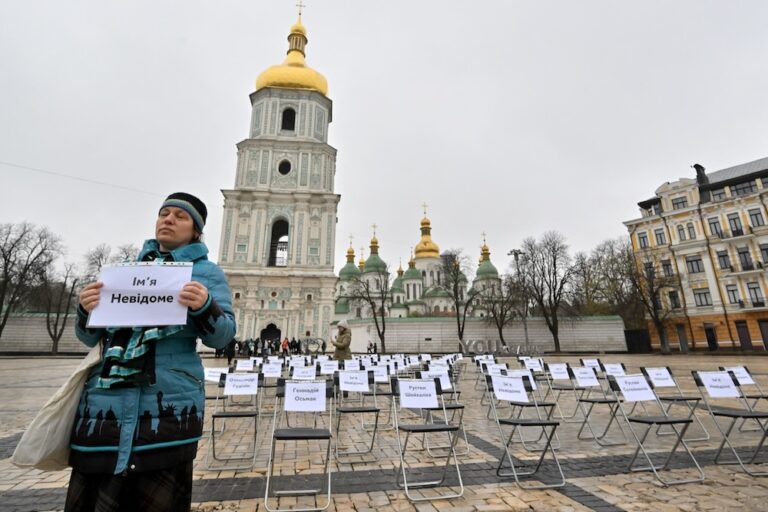A new law extends compulsory DNA data collection: anyone suspected of any crime will have their DNA collected, and those convicted or sentenced to administrative detention for a misdemeanour will have their DNA profile stored in a state database for life.
This statement was originally published on hrw.org on 7 February 2023.
New law Is an assault on the right to privacy
Russian President Vladimir Putin signed a law extending compulsory DNA data collection to millions of people yesterday. Anyone suspected of any crime will have their DNA collected, and those convicted or sentenced to administrative detention for a misdemeanor will have their DNA profile stored in a state database for life.
This new legislation boosts Russia’s massive surveillance system and delivers another blow to the right to privacy. The government anticipates collecting DNA from at least 1.8 million people annually. In 2019, Russian courts imposed nearly one million sentences of administrative detention and 620,000 criminal sentences, which indicates the intended scope of the measures after the law fully enters into force in 2025. The administrative offences include participation in “unauthorized” assemblies, traffic offences, public intoxication, and failure to pay a minor fine.
Previously, only people convicted of sexual offenses or other grave crimes were subject to DNA collection, although police officers often forced detained activists to submit DNA samples.
While all biometric data, such as fingerprints and facial images, is sensitive, mass collection of DNA information is particularly problematic because it can reveal the person’s ethnicity, family ties, and hereditary diseases.
Such a sweeping approach violates international human rights law. In Gaughran v. the United Kingdom, the European Court of Human Rights concluded that indefinite retention of a DNA profile, without accounting for the seriousness of the offense, constitutes a disproportionate interference with the applicant’s right to respect for their private life.
Russian law gives law enforcement agencies unrestricted powers to access and use the information in the database without independent oversight.
The offenders “have already shown their disloyalty,” the Internal Affairs deputy minister argued, calling on lawmakers to embrace the inevitability of total digital control.
In December 2022, Russia adopted laws requiring the pooling of all biometric data into a unified state database and giving Russian security services direct access to taxi users’ trips. Authorities are expanding the use of their facial recognition software to harass and prosecute activists and hunt down people evading conscription for Russia’s war in Ukraine. In the absence of safeguards, sensitive personal data and surveillance have already been shown to be prone to corruption and leaks.
Russia should renounce mass DNA hoarding, introduce time limits, periodically review the necessity of continued storage of genetic information, and narrow down the list of people authorized to access the database.



